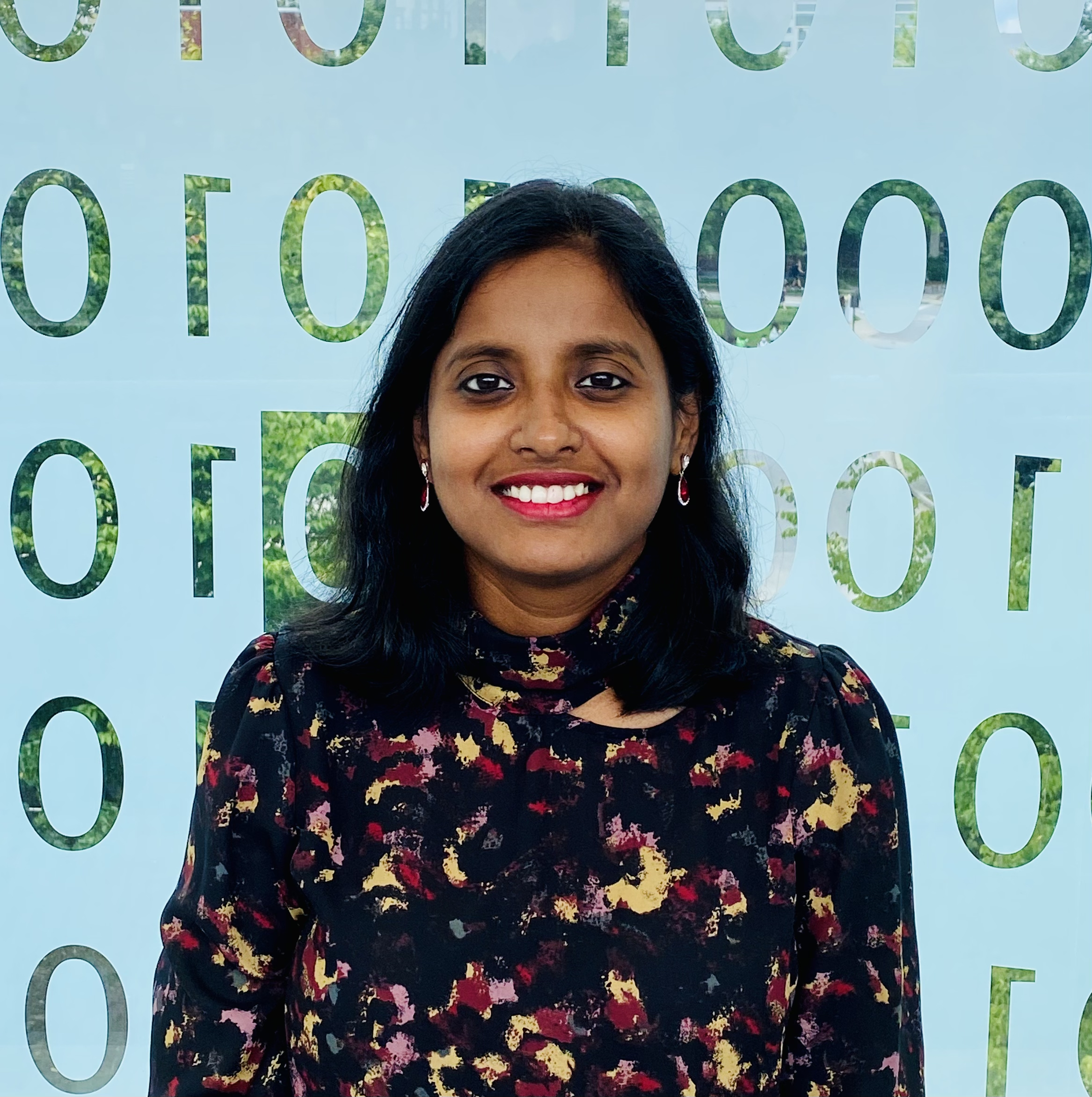
Faculty Candidate Seminar
Software and Architecture for Reliable Quantum Computing
This event is free and open to the publicAdd to Google Calendar

Zoom link for remote participants, passcode: 724662
Abstract: Quantum computers can solve many important applications that are beyond the capabilities of
conventional computers. However, noisy quantum hardware leads to errors during program execution
which limit us from running applications with high fidelity. Quantum information can be protected by
using quantum error correction, but it requires huge resource overheads that are impractical on near-
term systems with a few hundreds of qubits. These near-term systems can speed up certain domain-
specific applications even in the presence of errors. Simultaneously, they are used to understand error
correction at a small-scale to pave the pathway toward fault-tolerant systems that can unlock the full
potential of quantum computing.
In this talk, I will provide an overview of my contributions in the quantum software and architecture
stack to improve the reliability of quantum computers. I will introduce ANGEL, a quantum compiler that
leverages application and device error characteristics to reduce the impact of gate errors during
program execution. ANGEL creates proxy circuits that imitate a given application, runs them on the
device, and builds an error profile which is then used to learn the optimal sequence of low-level gates to
translate the program. Next, I will describe the challenges in enabling real-time quantum error
correction within a budget of a few micro-seconds and discuss LILLIPUT, an efficient lookup table error
decoder. LILLIPUT only stores entries corresponding to correctable errors and significantly reduces the
memory overheads of the lookup tables. I will also briefly discuss the system-level organization required
for quantum error correction at large scale. Finally, I will conclude with my future research vision
towards building a unified software stack for quantum computing, designing systems for enabling
scalable quantum computers, and architecting cryogenic systems.
Bio: Poulami Das is a PhD Candidate at Georgia Institute of Technology. Her research focuses on
developing software and architecture for improving the reliability of quantum computers. She obtained
her Masters degree from the University of Texas, Austin and Bachelors degree from the National
Institute of Technology (NIT), Durgapur, India. She is the recipient of the Microsoft Research PhD
Fellowship, Institute Gold Medals at NIT Durgapur, and has been selected as a Rising Star in EECS.
She is passionate about continuing innovative research to pave the road towards practical quantum
advantage and broadly impact the field of computing as well as the society at large. Her research has
been recognized with the Best Research Award at the DAC PhD Forum, Cleaver Award for the most
outstanding PhD dissertation proposal in ECE, Georgia Tech, a Best Paper Award at Computing Frontiers,
and has appeared in top architecture and systems venues like MICRO, HPCA, and ASPLOS. She
frequently collaborates with quantum and architecture research groups at IBM, Microsoft, Google, and
Amazon. She is also passionate about teaching and most recently has served as a co-instructor for a
graduate-level course on quantum computing at Georgia Tech.
Website: https://sites.gatech.edu/poulamidas/
 MENU
MENU 
